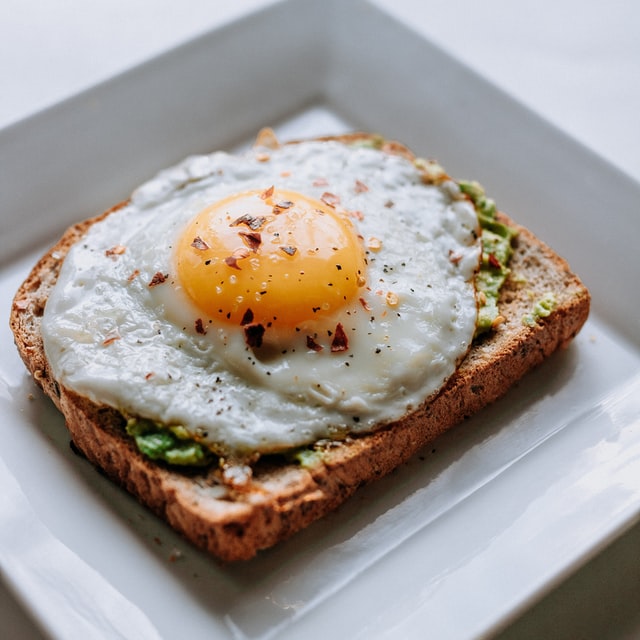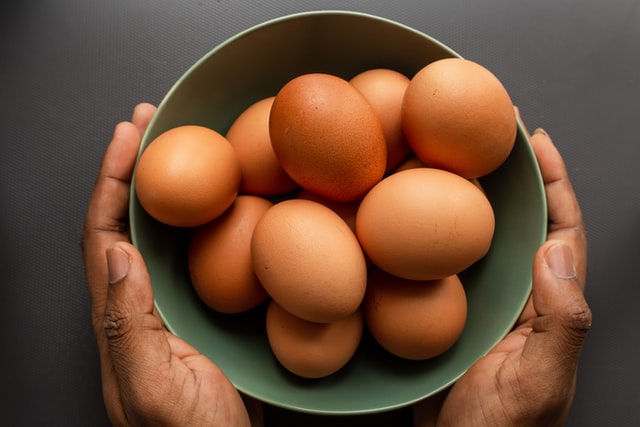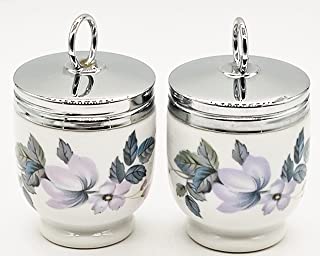There it was, shunted to the back of a shelf in the thrift store.
It was only a few inches high, taller than it was wide, but you couldn’t help but notice it. Prim and elegant amongst the abandoned Pyrex and Corningware, it looked like a full dress naval officer amongst ruffians. This one was white and painted with a spray of flowers. It was beautiful. What gave it its military bearing was the shiny metal tam-o-shanter of a lid screwed tightly on top.
… it looked like a full dress naval officer amongst ruffians.
It was an egg coddler.
A wonderful little device that soft cooks an egg to perfection. They used to be a commonplace feature of the breakfast table. Now you find them in thrift stores and on Etsy. Here’s just how far coddlers have fallen into disuse: autocorrect keeps adjusting the spelling of coddler to codder. Codder doesn’t appear to have a dictionary definition but it takes precedence over coddler.
You’ve screwed up eggs before, haven’t you? You can go bust with over-easy, sunny-side-up, poached, even failsafe scrambled eggs within a heartbeat. In fact, the difference between an omelette and scrambled eggs is about 45 seconds. One false step and it’s game over. But coddlers are on your side. Coddlers are purpose built gadgets that protect you from ugly outcomes. There’s lots to love about a coddler as they almost guarantee a desirable result. When you consider all of that, it’s odd to think that they’ve fallen out of favour.
… the difference between an omelette and scrambled eggs is about 45 seconds.
You use a coddler in order to achieve an egg with the texture of a poached egg but without the attendant wateriness of a poached egg. It’s ultra simple. The egg is cracked into the buttered, porcelain vessel, the jaunty lid sealed and the device placed into a pot of shallow, simmering water. Depending on how you like your eggs, your egg is ready in about six minutes. And unlike a poached egg, you can take a peak and decide whether to keep going.
The classic practice of eating a coddled egg involved dipping toast points, usually called soldiers, into the pot. Others preferred to tip the contents out onto a piece of buttered toast.
You can improvise a coddler using a ramekin. I’m told a saucer used as a lid duplicates the finished product of the coddler. Wee jars can also be similarly pressed into service.
No one knows when the first coddlers were made but they became popular in Europe towards the end of the 19th century. The fanciest coddlers all seem to come from Royal Worcester in Britain and there are all sorts of collectors who vie for the early examples.
My eggs? I like mine baked in a cake!
Eggs are endlessly fascinating to chefs. They’re arguably the most versatile ingredients in the kitchen, showing up in meals at every time of the day. Nutritionists laud them as the ‘perfect food’, largely because, despite being only 75 calories each, they contain all nine of the essential amino acids. Cookbooks are rife with tips on how to boost various egg mainstays. One chef recommends enhancing your scrambled eggs by adding a tablespoon of orange juice. Another swears that a quarter cup of sparkling wine adds measurable zing to a two-egg scramble. Many a cook adds a splash of vinegar to poaching water. Some of the molecular gastronomes insist that bringing your scrambled eggs – salting them and letting them sit for ten minutes – improves how they plate. I can tell you that using a cast iron frying pan and a low heat delivers a stellar result but only if you barely move the eggs around. A dollop of butter added halfway through is known to favourably affect the way the eggs set up.

From tamagoyaki, shakshuka, piperade to soufflés, there are so many ways to answer the question of ‘How do you like your eggs?” And that includes, “My eggs? I like mine baked in a cake!”
This week’s question for readers:
How do you like your eggs? Any tricks up your bathrobe sleeve?
Leave your Comments below!
Register for The Plain Jane newsletter to enter the ice cream contest.
Good luck!!
Submissions to last week’s question:
Do you have tricks for remembering things? What’s your memory like these days?
I’ve had a lousy memory dating back to school days. Couldn’t memorize a poem. In high school and university days I played in folk groups, but only once sang lead. I could not remember the lyrics. Just to broaden your view of theatre – the last 25 years of my career has been as an arts publicist – Bard and Arts Club are outliers in having much bigger budgets. Your average theatre run (Rumble, Firehall, Touchstone and all the newbies) rehearses on average for 2-1/2 weeks for a 2-1/2 week run. What blew my mind was, once the first show opens in the evenings, some of the actors may be starting daytime rehearsals on their next shows. YIKES!
Ellie O’Day
I believe part of having a good memory is what you’re born with. I have an excellent memory for dates, always have had; for years I thought people remembered things like I do. If I can connect a date, perhaps a birthday with something else, I will remember it for years even if I’m not close to that person. I am 73 now, hope that continues for the rest of my life.
Linda Moore
Memory? What memory?! Long term memory is there but short term is rapidly declining. There are tricks for remembering: routine, notes to self and lists; often duplicate lists! Leaving something out of place can help if you can recall why you left it out! Also we now keep a hard cover notebook for things we must remember. So far, we know where it is! Naming has become a problem for my spouse and I. Recently our daughter tiled our ensuite shower. We needed to purchase, you know, the glue stuff, and the stuff that fills the spaces between the tiles. Luckily we can still recall who we are!
Bonnie Hamilton
I do try to exercise my memory, especially when grocery shopping. I’ll usually shop the store first with a list kept tucked in my pocket. Once I’ve exhausted my memory bank, and often selected items I want rather than need, which is especially true when shopping hungry, I’ll pull out the list. For a smaller amount I’ll give myself a number in my mind for the number of items needed. This technique is usually less accurate and I inevitably come up short. But hey, I need the exercise.
Bruce Shaw

